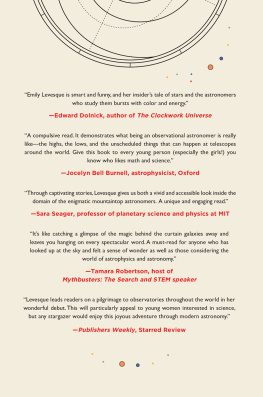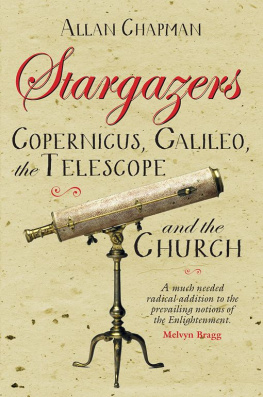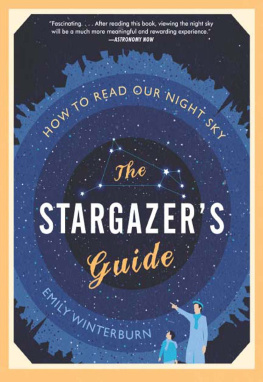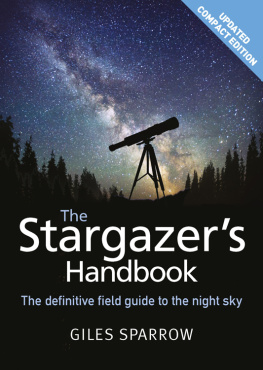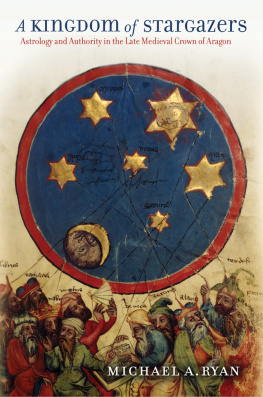Emily Levesque - The Last Stargazers: The Enduring Story of Astronomys Vanishing Explorers
Here you can read online Emily Levesque - The Last Stargazers: The Enduring Story of Astronomys Vanishing Explorers full text of the book (entire story) in english for free. Download pdf and epub, get meaning, cover and reviews about this ebook. year: 2020, publisher: Sourcebooks, genre: Non-fiction. Description of the work, (preface) as well as reviews are available. Best literature library LitArk.com created for fans of good reading and offers a wide selection of genres:
Romance novel
Science fiction
Adventure
Detective
Science
History
Home and family
Prose
Art
Politics
Computer
Non-fiction
Religion
Business
Children
Humor
Choose a favorite category and find really read worthwhile books. Enjoy immersion in the world of imagination, feel the emotions of the characters or learn something new for yourself, make an fascinating discovery.
- Book:The Last Stargazers: The Enduring Story of Astronomys Vanishing Explorers
- Author:
- Publisher:Sourcebooks
- Genre:
- Year:2020
- Rating:4 / 5
- Favourites:Add to favourites
- Your mark:
- 80
- 1
- 2
- 3
- 4
- 5
The Last Stargazers: The Enduring Story of Astronomys Vanishing Explorers: summary, description and annotation
We offer to read an annotation, description, summary or preface (depends on what the author of the book "The Last Stargazers: The Enduring Story of Astronomys Vanishing Explorers" wrote himself). If you haven't found the necessary information about the book — write in the comments, we will try to find it.
Emily Levesque: author's other books
Who wrote The Last Stargazers: The Enduring Story of Astronomys Vanishing Explorers? Find out the surname, the name of the author of the book and a list of all author's works by series.
The Last Stargazers: The Enduring Story of Astronomys Vanishing Explorers — read online for free the complete book (whole text) full work
Below is the text of the book, divided by pages. System saving the place of the last page read, allows you to conveniently read the book "The Last Stargazers: The Enduring Story of Astronomys Vanishing Explorers" online for free, without having to search again every time where you left off. Put a bookmark, and you can go to the page where you finished reading at any time.
Font size:
Interval:
Bookmark:


Copyright 2020 First Light Science, LLC.
Cover and internal design 2020 by Sourcebooks
Cover design by Pete Garceau
Cover illustration by Heather Morris/Sourcebooks
Cover images Trifonov Evgeniy/Getty Images
Internal design by Jillian Rahn/Sourcebooks
Sourcebooks and the colophon are registered trademarks of Sourcebooks.
All rights reserved. No part of this book may be reproduced in any form or by any electronic or mechanical means including information storage and retrieval systemsexcept in the case of brief quotations embodied in critical articles or reviewswithout permission in writing from its publisher, Sourcebooks.
This publication is designed to provide accurate and authoritative information in regard to the subject matter covered. It is sold with the understanding that the publisher is not engaged in rendering legal, accounting, or other professional service. If legal advice or other expert assistance is required, the services of a competent professional person should be sought. From a Declaration of Principles Jointly Adopted by a Committee of the American Bar Association and a Committee of Publishers and Associations
This book reflects the authors present recollections of experiences over a period of time. Some names and/or characteristics have been changed, some events have been compressed, and some dialogue has been re-created.
Published by Sourcebooks
P.O. Box 4410, Naperville, Illinois 60567-4410
(630) 961-3900
sourcebooks.com
Library of Congress Cataloging-in-Publication Data
Names: Levesque, Emily, author.
Title: The last stargazers : the enduring story of astronomys vanishing explorers / Emily Levesque.
Description: Naperville, Illinois : Sourcebooks, [2020] | Includes bibliographical references and index.
Identifiers: LCCN 2020005285 | (hardcover)
Subjects: LCSH: Levesque, Emily. | Astronomy--Popular works. | Astronomers--Popular works. | Astronomical observatories--Popular works.
Classification: LCC QB44.3 .L45 2020 | DDC 520--dc23
LC record available at https://lccn.loc.gov/2020005285
For Mom,
who gave me stories
CONTENTS
INTRODUCTION
Have you tried turning it off and back on again?
This phrase, repeated by weary IT specialists the world over, had possibly never prompted such horror. First of all, it was one in the morning, and I was sitting in a chilly control room on top of the highest mountain in Hawaii. I was nearly fourteen thousand feet above sea level, twenty-four years old, and desperately fighting through sleep and oxygen deprivation to salvage several hard-won hours of PhD thesis research time on a piece of broken equipment.
Second, the equipment in question was the Subaru Telescope, a 630-ton beast housed one floor above my head in a fourteen-story dome. A joint venture between the U.S. and Japanese astronomy communities, the telescope boasted a pristine primary mirror more than twenty-seven feet in diameter (the largest single piece of glass in the world) and a suite of some of the most sophisticated scientific instruments and imaging tools on the planet. It cost $47,000 per night to operate, and after submitting a twelve-page science proposal to the professors in my department, I had been granted one of these valuable nightstonight, the only night allotted to me in the entire yearto point this telescope at a handful of galaxies five billion light-years away.
No, I had not tried turning it off and back on again.
The evening had been going excellently until one of the control room computers had produced an unsettling bloonk sound and prompted the telescope operatorthe only other person with me on the mountainto freeze in her seat. When I asked what was up, she cautiously informed me that one of the mechanized supports holding up a mirror had just failed, but its okay. I think the mirror is still on the telescope.
You think ?
Yeah. If it wasnt, we would have heard a crash. Solid reasoning, if not exactly reassuring.
Wed apparently gotten lucky with how the telescope was positioned when the mechanized support failed, preventing an immediate disaster. For the moment, it was still holding up the secondary mirror, notably smaller than the primary but still four feet wide, four hundred pounds, and suspended seventy-three feet in the air to redirect light collected and reflected by the primary mirror into the camera I was using. Unfortunately, if we moved the thing again, wed be at risk of dumping the secondary onto the floor, and that was if we were lucky. If we were unlucky, it would hit the primary on its way down.
We put in a nervous call to the Subaru members of the day crew, a group of engineers who worked on maintaining the thirteen telescopes on the mountain during the daylight hours when the observers were asleep. The Japanese crew member we reached cheerfully informed us that he had, in fact, seen this happen earlier in the day, that the mechanized supports were probably fine and it was probably just a false alarm, and that turning the power off and then on again would probably fix the problem. It seemed impolite to point out that we were talking about a multimillion-dollar telescope and not a modem.
I didnt know what four hundred pounds of glass hitting the concrete floor above my head would sound like, but I knew I didnt want to find out. I was also quite sure I didnt want to be forever known as the grad student who killed Subaru. Id heard too many I broke the telescope stories over the years to ignore the fact that this was a very real possibility. One of my collaborators had destroyed an outlandishly expensive digital camera on a telescope by innocently touching two of the wrong wires together; the story had gotten back to his boss before he did. Another astronomer, this one a veteran observer, had slammed the business end of a telescope into a movable platform inside the dome that she had forgotten to retract partway through a sleep-deprived night. Sometimes these sorts of failures werent even anyones fault. A gargantuan three-hundred-foot-wide radio telescope in Green Bank, West Virginia, had just up and collapsed one evening, crumpling like a stepped-on soda can partway through an observation. I couldnt remember exactly what had caused the infamous Green Bank failure, but I was convinced the words mechanized support had been involved. The cautious thing for me to do would be to call it a night, drive back down to the observatorys sleeping quarters, and have the day crew carefully check things over the next morning.
On the other hand, this was my only night on the telescope. Tomorrow, it wouldnt matter whether Id experienced a mechanical failure, a false alarm, or even just some poorly timed clouds; telescope time is strictly scheduled months in advance, and another astronomer would be arriving with a completely different science program. All that would matter was that my night had come and gone without completing my observations. I would have to submit a whole new proposal, hope for another hard-to-get yes from the telescope committee, wait an entire yeara full trip of the earth around the sununtil the galaxies were back up in the night sky to try again, and hope that night wouldnt have any clouds or telescope problems.
I desperately needed these galaxies. Several billion years ago, each of them had hosted a strange phenomenon known as a gamma-ray burst. Astronomers best guess was that these bursts were coming from massive rapidly spinning dying stars whose cores were collapsing into black holes and cannibalizing the stars from the inside out, igniting violent jets of light that came streaking through the cosmos to arrive at Earth as flashes of gamma rays lasting mere seconds. Stars died all the time, of course, but only a handful of them were flashing us like this, and nobody could explain why. I had built my entire PhD thesis on the idea that studying the chemical makeup of these stars home galaxiesthe same gas and dust they had been born fromwas the key to understanding why they exploded the way they did. Subaru was one of the only telescopes in the world capable of such observations, and the day crew had said it was probably giving me a false alarm. If I called off the night, Id be giving up what could well be my only opportunity to ever study these galaxies, losing a linchpin of my thesis research in the process.
Next pageFont size:
Interval:
Bookmark:
Similar books «The Last Stargazers: The Enduring Story of Astronomys Vanishing Explorers»
Look at similar books to The Last Stargazers: The Enduring Story of Astronomys Vanishing Explorers. We have selected literature similar in name and meaning in the hope of providing readers with more options to find new, interesting, not yet read works.
Discussion, reviews of the book The Last Stargazers: The Enduring Story of Astronomys Vanishing Explorers and just readers' own opinions. Leave your comments, write what you think about the work, its meaning or the main characters. Specify what exactly you liked and what you didn't like, and why you think so.

